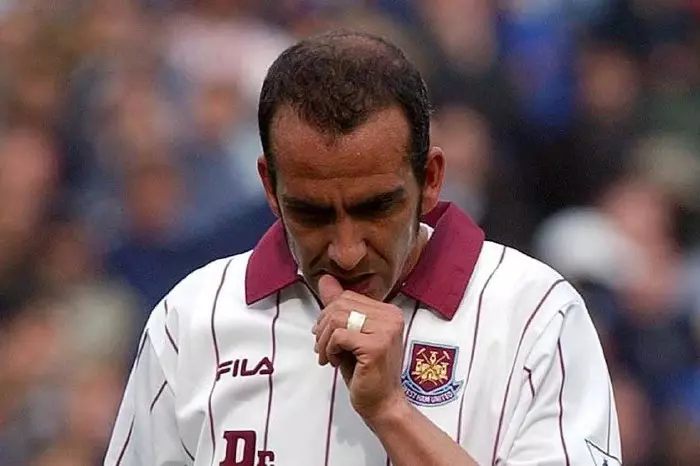Who will be relegated from the Premier League? Stats, facts, tips and predictions for 2024/25 season
Burnley relegation
As a new Premier League season looms, speculation is as rife as ever over the survival chances of many of the current teams, established and newly-promoted alike.
But are there any patterns that might help us evaluate just where those relegation candidates are likely to come from, and where to put our money on a good-value relegation bet?
Of the 20 clubs about to start the 2024-25 campaign, only seven have enjoyed uninterrupted top-flight status since as recently as 2012, including the so-called Big Six (Manchester United, Manchester City, Liverpool, Arsenal, Chelsea and Tottenham) along with Everton, who share the Gunners’ record of never having suffered a relegation, although they have come dangerously close in recent seasons.
How the mighty fall
It is worth remembering that even serial EPL champions, Manchester City, are not Premier League ever-presents, having been relegated twice since the Premier League began in 1992/93.
Indeed, City were last promoted from the Championship as recently as 2002, following a chequered previous decade that had seen them actually slip into League One for one ignominious season in 1999.
It's also worth noting that Blackburn Rovers went down just four seasons after Alan Shearer had inspired them to pip Manchester United to the Premier League title in 1995.
Two years ago it was the turn of Leicester City, who had memorably lifted the Premier League trophy as 5000/1 outsiders as recently as 2016, and the Foxes remained habitual top-half finishers until slipping off the tightrope two seasons ago, albeit bouncing straight back up last term.
The Big Six could arguably be upgraded to a Big Eight now that Newcastle United and Aston Villa, under the guidance of Eddie Howe and Unai Emery respectively, appear to have earned a place on the top table.
Most likely Big Eight team to go down: Chelsea 28/1
Those apart, the remaining dozen Premier League managers will all have one initial objective in mind: namely, reaching the so-called magical 40-point mark that should be enough to put them outside the drop zone.
After all, you don’t have to swim faster than the shark, only faster than the man (or in this case, the three clubs) behind you.
Managers of clubs who survived the drop last season will also be hoping that this season’s new boys, Leicester, Ipswich and Southampton, will make their lives easier by struggling to adapt to the step-up in class.
40 points - Hit or myth?
This begs the question of how reliable that 40-point target actually is, and the stats offer mixed news for relegation-haunted managers.
It is soon apparent that the 40-point target errs comfortably on the side of caution, because of the 63 relegated clubs in the past 21 seasons, only Birmingham City and Blackpool have gone down within one point of that target when they finished level on 39 points, just a point behind Wolves, in 2010/11
Indeed the above example is the only time in the last 21 seasons that 40 points have actually been required to stay up, and one of only two seasons that a 17th-placed club has actually achieved that target (Watford did likewise in 2016/17, but the Hornets had a six-point cushion above Hull City).
Often the threshold required to survive the drop is considerably lower – last season, for example, only 27 points would have been enough to stay up, although in reality, without their 4-point deduction, 17th-placed Nottingham Forest would have finished a comfortable 10 points clear of Luton Town, whose 26-point tally was a record low for a team finishing 18th.
The exception that proves the rule

But managers and fans beware!! That 40-point safety threshold is not a mathematical certainty; every season is different, and there can always be an exception that proves the rule.
The last time a team went down with 40+ points was when West Ham United failed to avoid the trapdoor in 2002/03, despite accumulating 42 points and finishing fully 16 points clear of 19th-placed West Brom.
It is significant that while only two 17th-place teams have reached 40 points in the last 21 years, the previous eight years had seen that target reached six times, which perhaps is an indication of the widening gulf between the teams in the top and bottom thirds of the table.
The yo-yo effect
So, our teams perhaps don’t need as many points as they thought, but can they rely on promoted clubs to struggle enough to make their own survival a little easier?
Well, for the most part, yes, to some extent, but again nothing is written in stone.
Before last season’s demise of Sheffield United, Burnley and Luton, we have to go all the way back to the 1997/98 season to find the only other time that all three promoted clubs went straight back down, when Crystal Palace, Bolton and Barnsley all failed to survive their first season back at the top table.
In contrast, the season before last saw Fulham, Bournemouth and Nottingham Forest all avoid the drop to make it only the third time in the last 21 years that all three promoted clubs escaped relegation the following season, the other two times being in 2012 (QPR, Norwich and Swansea) and 2018 (Newcastle, Brighton and Huddersfield).
Every other season has seen at least one promoted club drop straight back down to the Championship (one club 9 times, and two clubs 8 times).
Of the 63 promoted clubs over the last 21 seasons, 35 have survived their first top-flight campaign, while 28 went straight back down - so mathematically a promoted club’s chances of first-season survival would appear to be actually better than 50-50.
So, if previous patterns are repeated this season, then statistically it appears more than likely that at least one promoted club will drop straight back down this season, meaning that one or two more established Premier League clubs are also destined for the trapdoor.
Favourites for relegation:
- Leicester City 4/9
- Ipswich Town 10/11
- Southampton 6/5
- Acca (all three promoted clubs relegated) 5/1 approx
Too good to go down?
 If the last few seasons are anything to go by, then besides the promoted new boys, the relegated clubs will probably include one team that always seems to be flirting with the drop zone, and one more established club that unexpectedly gets sucked into the relegation black hole.
If the last few seasons are anything to go by, then besides the promoted new boys, the relegated clubs will probably include one team that always seems to be flirting with the drop zone, and one more established club that unexpectedly gets sucked into the relegation black hole.
Way back in the 1970's the phrase “too good to go down” was born with reference to Manchester United, whose fate was ironically sealed by a backheel from former legend Denis Law, who had been moved on to arch-rivals, City.
The same term was applied to two-time European Cup winners Nottingham Forest in 1999, but down they went to languish in the lower tiers for more than two decades until their eventual return three seasons ago.
We have already touched upon the downfalls of previous champions Blackburn and Leicester, and such falls from grace offer a stark warning for the likes of Premier League ever-presents like Everton, who have become experts at tiptoe-ing around the relegation trapdoor.
That said, without their eight-point deduction, the Toffees would have finished 22 points above the drop zone last term, in mid-table safety and level with the likes of Brighton and Bournemouth.
Indeed, it is clubs like those two, who have appeared to have been punching above their weight recently, that are potentially more vulnerable, especially those who have recently changed managers or who have seen key players move on.
Roberto De Zerbi’s departure from Brighton’s hot seat could make this a tricky campaign for the Seagulls, while their arch-rivals Crystal Palace could face similar struggles if Michael Olise’s move to Bayern Munich triggers an exodus of the influential players who helped them finish last season so strongly.
Outsider candidates for the slippery slope:
Premier League relegation stats:
(all stats are since the Premier League was reduced to 20 clubs in 1995/96)
- Number of different clubs relegated: 41
- Lowest points total: 11 (Derby County 07/08)
- Most points won by bottom club: 34 (Nottingham Forest 96/97)
- Most points won by relegated club: 42 (West Ham 02/03)
- Fewest points won to survive: 32 (Nottingham Forest 23/24)
- Fewest points gained by 18th-placed club: 26 (Luton Town 23/24)
- Tightest relegation scrap: 2004/05 (WBA 34, Palace 33, Norwich 33, Southampton 32)
- Largest margin of safety: 11 points (Burnley 39, Fulham 28 20/21)
- Smallest margin of safety: Goal difference 4 times (95/96, 97/98, 06/07, 07/08)
- Safety by two points or less: 14/29 = 48%
- Promoted clubs going straight back down: 39/87 = 45%
- All three promoted clubs relegated: Twice (97/98 and 23/24)
- All three promoted clubs stay up: 4 times (01/02, 11/12, 17/18, 22/23)
- One promoted club straight back down: 14/29 = 48%
- Two promoted clubs straight back down: 9/29 = 31%
- Most points gained by a promoted club: 66 (Ipswich - 5th in 2000/01)
- Clubs relegated with 40+ points: 3 times (96/97, 97/98, 02/03)
- 17th-placed clubs with fewer than 40 points: 21/29 = 72%
- Most times finishing 17th: 3 times (Everton, Sunderland, Southampton)
- Most relegated club last 21 years: WBA & Norwich City (5 times)
- Most times relegated straight after promotion: Norwich City (4 times)
- Tottenham Hotspur
- Luton Town
- Brighton & Hove Albion
- AFC Bournemouth
- Barnsley
- Manchester United
- Manchester City
- Nottingham Forest
- Chelsea FC
- Crystal Palace
- Southampton
- Burnley
- Blackpool
- Aston Villa
- Sheffield United
- Arsenal FC
- Leicester City
- Liverpool
- Fulham FC
- West Ham United
- Derby County
- Newcastle United
- Huddersfield Town
- Everton FC
- Ipswich Town


